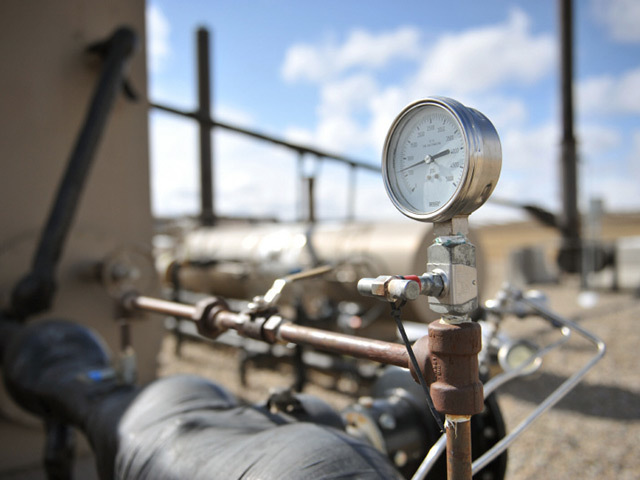
The end of maintenance at a pipeline to Germany from Russia later this week will probably cut gas export demand from the UK, putting pressure on prices as Britain’s storage sites are set to fill up earlier than usual.
Planned maintenance at the Nord Stream pipeline started on June 24, limiting supply to Germany and helping support prices in the U.K., which boosted exports to the continent, according to London-based consultants Energy Aspects Ltd. Works on the link that runs under the Baltic Sea are scheduled to end tomorrow, according to network operator Opal Gastransport.
Gas demand to fill storage sites in the UK will slow this month and next as inventory building is “basically already done,” according to Credit Suisse Group AG. Facilities will probably be filled in August, earlier than the usual October period, according to Richard Sarsfield-Hall, a senior principal at Poeyry Consulting.
“Russia has the ability to move vast amounts of gas through Nord Stream, so the end of works is generally bearish to UK gas prices,” Tobias Davis, a broker at GFI Securities in London, said yesterday by e-mail. “We also have large LNG deliveries and historically high storage levels, so expectations are we will be oversupplied.”
UK gas for August, which fell at the slowest rate in more than a month in the week ended June 27 as Nord Stream maintenance started, fell to 38.38 pence a therm ($6.59 a million British thermal units) on the ICE Futures Europe exchange in London yesterday, the lowest closing level for a next-month contract since August 2010. Prices are down more than 40 percent this year.
Europe’s mildest winter in seven years meant less gas was withdrawn and inventories filled up earlier than usual, with facilities in the UK 93% full as of June 29, according to data from Gas Infrastructure Europe, a Brussels-based lobby group. That’s the highest for that time of the year since at least 2007, the data showed.
Demand usually declines in the summer months as less gas is used for heating, with an average low point on Aug. 7, according to National Grid data for the past 10 years.
The UK’s “exceptionally high” inventories left “far too little storage demand in the system this spring and summer,” Credit Suisse analysts including Jan Stuart said in a June 23 report. “It is a matter of time before the winter futures and next year’s calendar average futures come down more.”
Winter gas, for the six months from October, fell 0.7% to 56.469 pence a therm on ICE yesterday, increasing its loss to 9.7% since the summer season started on April 1.
Exports from the UK to Belgium have started to slow as Nord Stream ended its full shutdown on June 28. Capacity at the Greifswald terminal in Germany is at 50 percent until tomorrow. Shipments to Belgium fell for a fifth day yesterday to 19 million cubic meters from 38.5 million cubic meters on June 27, according to data from Interconnector U.K. Ltd., which operates the two-way pipeline between the UK and Belgium.
Normal flows to Europe through Ukraine after Russia cut supplies to the nation on June 16 are also adding bearish pressure on U.K. gas prices, Davis said. Russia’s OAO Gazprom said today transit to Europe via Ukraine was proceeding normally while the Slovakian grid operator said it didn’t record pressure reduction or lower volumes at a compressor station at the Ukrainian border.
UK prices probably won’t find support from increased gas usage in power generation, according to Sarsfield-Hall. While the amount of electricity generated using gas has climbed in the past two months, according to National grid data, higher prices later in the year will mean coal will still be more advantageous than gas this winter, he said.
“Gas usage in power generation often is higher in the summer than in the winter” because of seasonality in prices, Sarsfield-Hall said. With gas prices rising later this year and coal continuing to fall, “that will push the market back to using more coal in the winter.”
Prices on the UK’s National Balancing Point hub will average 39 pence a therm in the third quarter, Credit Suisse said, cutting its forecast from 57 pence a therm. Prices in the last three months of the year, when the winter season starts, will be 54 pence, down from an earlier estimate of 65 pence, according to the bank.
